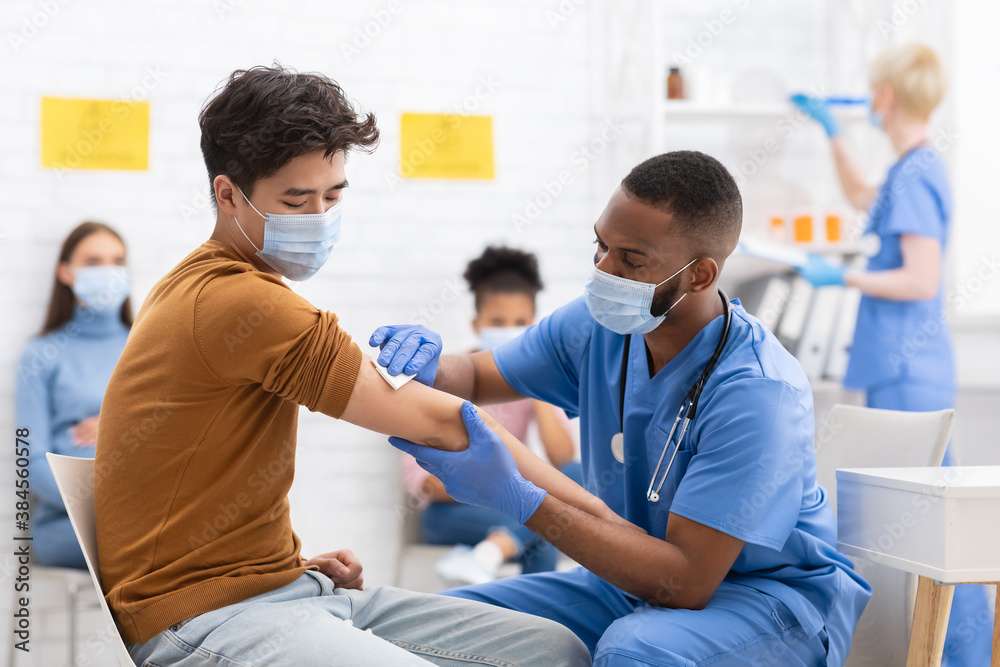
single swear word summed up the feeling in my GP group chat as they went on to alert me of the Government’s announcement on Sunday to deliver a third Covid-19 booster to all adults who want one by the end of the year.
My heart sank. I understood my colleagues’ dismay as I learned of the plan to ‘pause’ routine care to prioritise the boosters. We are all too aware of the current backlogs. Waiting lists have reached record highs as nearly six million people wait, while GPs see patients deteriorate, only to need increased care and more attention from the NHS. Meanwhile, hospitals continue to struggle with capacity.
We’re all worried there’s very little resilience within the system and GPs will still be asked to soldier on despite increasing pressures.
Throughout the pandemic GPs have been grossly undermined for managing this workload and maintaining safe working practices for both patients and staff. We’ve not fully recovered from this, and the distrust it has built makes the job much harder – for some untenable.
Colleagues routinely report ‘so much anger’ from the very people they are trying to help. It’s mis-directed and continues to be fuelled by our leaders under the guise of face-to-face appointments. I long for our politicians to admit how complex the issues are around our broken healthcare system. Instead, we see GPs flitting from being the scapegoats to the solution at the whim of a press release. The impact on morale is evident and GPs are, understandably, leaving in their droves.
So why are we not saying no to this disruption? The Omicron variant is much more contagious and it’s evading the vaccine and natural immunity – but less so with a third booster. Pfizer recently announced there will be four billion BNT162b2 vaccines produced – what we currently use – and this formula is not expected to change as they’re not able to adapt to new variants and scale up fast enough.
The latest report from the Intensive Care National Audit and Research Centre shows that just over half of Covid ICU admissions in the last two months were in those who were double vaccinated. Omicron is only thought to have spread within our population in the last few weeks, so this may not simply be attributed to a new variant. Simply put, this booster programme is our best chance of more of us remaining well and out of hospitals.
Mitigations beyond vaccines may be even more important with a rapidly growing anti-vax movement. Mitigations beyond vaccines may be even more important with a rapidly growing anti-vax movement, which has surged by millions and this could have ramifications to all of our vaccine programmes. The success of vaccines depends on herd immunity.
There are whispers that Test and Trace will continue until 2025 – a good hint life with coronavirus is here to stay. It’s time to embrace this as our normal for our own sanity. The Doctors’ Association UK supports normalised mask wearing with their #MaskUp campaign and perhaps splurge on the best perfume infused alcohol gel.
GPs will, I’m sure, again heroically deliver on this booster programme but the cost has to be levelled with long-term resilience building. More people will be in dire need of care as soon as this pause reverts to play and the GPs that are left to pick up the pieces may not be able to sustain this without expecting much better working environments. This includes professional respect, a stronger focus on other safeguards against the virus and future pandemics.
We need to embrace mitigations that don’t simply build on the shoulders of a very worn workforce that have simply been trying to do their best through the pandemic.
Perhaps it’s time we come round to the idea of what responsibility we can take and ask for more non-vaccine future proofing, in the hope that we can get on with our lives.
Dr Yasotha Browne is a GP and Diversity Lead with the Doctors’ Association UK
Read the piece in Mail Plus here





